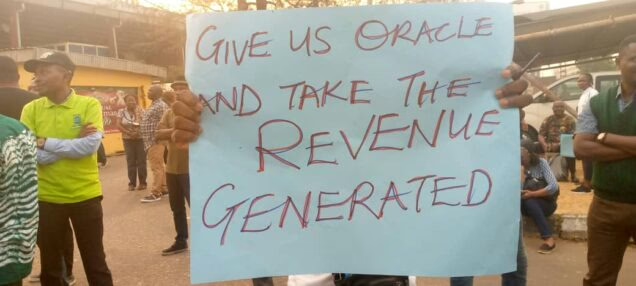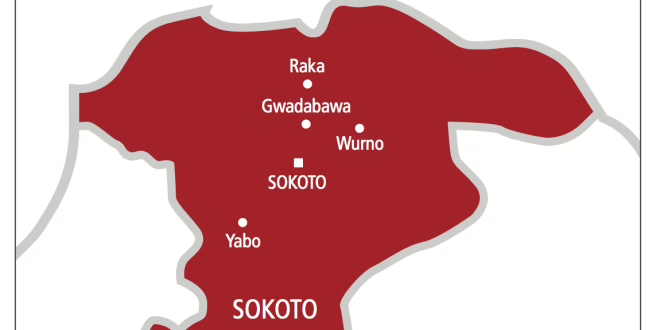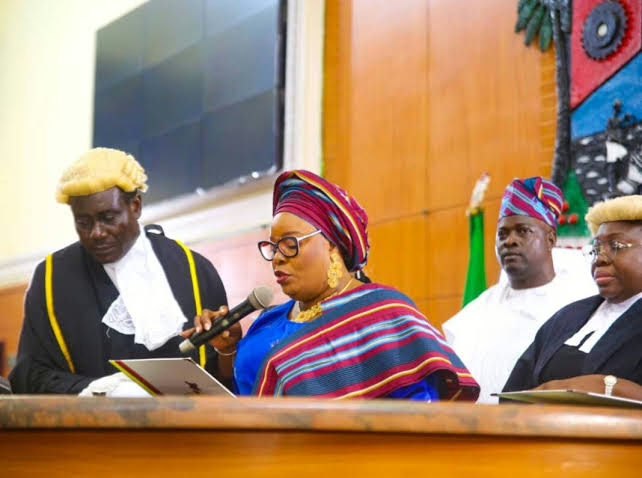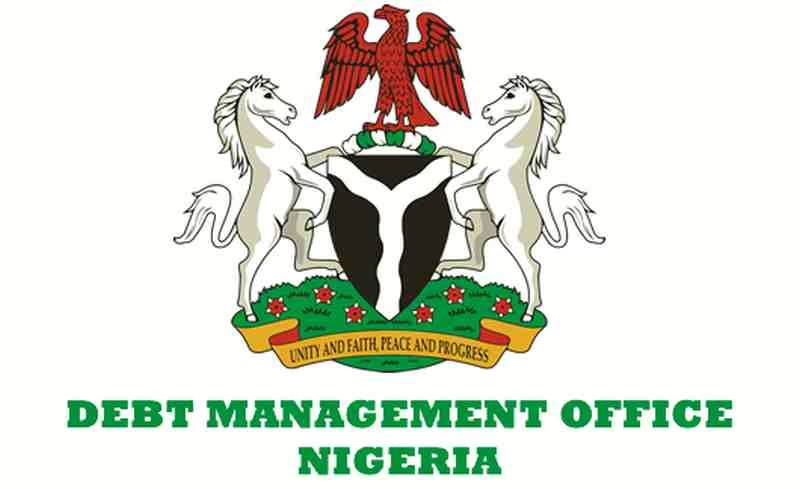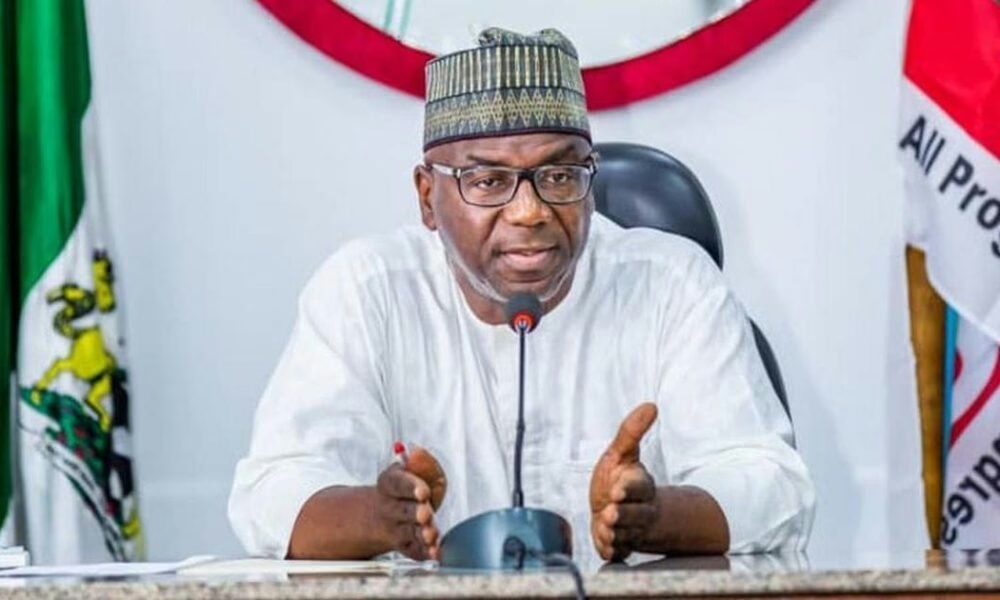Non-involvement of NBA in policy formation alarming

The United Kingdom Minister for Business and Trade, Kemi Badenoch and Nigerian Trade Minister Doris Nkiruka Uzoka-Anite, at the signing on Tuesday in Abuja.
The NBA, as the umbrella body for legal practitioners in Nigeria, ought to play a pivotal role in shaping legal frameworks, advocating for justice, and ensuring the rule of law. One of its fundamental responsibilities ought to be policy engagement, whereby it provides expert legal advice and contributes to the formulation of laws and agreements that affect the country’s legal landscape. However, the recent ETIP signing highlights a glaring gap in the NBA’s policy engagement strategy.
The ETIP encompasses provisions aimed at facilitating the expansion of legal services between the UK and Nigeria, including the removal of barriers hindering UK lawyers from practising international and foreign law within Nigeria. Such provisions directly implicate the legal profession, yet there is a conspicuous absence of meaningful engagement between the NBA and relevant stakeholders in the negotiation process.
One might question why the NBA, with its mandate to safeguard the interests of legal practitioners and uphold legal standards, was not consulted extensively during the formulation of a trade agreement with profound implications for the legal sector. The failure to actively involve the NBA raises deep concerns about transparency, accountability, and the representation of legal professionals’ interests in crucial policy decisions. The current landscape reveals a stark reality: the NBA is no longer regarded as a prominent player in guiding the trajectory of governmental policies in Nigeria.
The NBA appears to be conspicuously absent in contributing to the design of effective policies amidst the myriad challenges facing the nation’s development and stability. Despite the wealth of knowledge and skills embedded in the profession and its practice, the NBA’s role in shaping governmental policies seems to be waning. It is alarming to observe that governmental policy institutions do not actively seek out the NBA’s expertise, signalling a concerning decline. The current situation underscores a troubling reality: the NBA is no longer perceived as a primary influencer in shaping the course of governmental policies in Nigeria. This shift is evidenced by the lack of meaningful engagement between the NBA and policy institutions, highlighting a growing chasm between legal expertise and policy formulation. The failure to harness the wealth of knowledge within the legal community to inform and shape public policies raises serious questions about the NBA’s efficacy and significance in contemporary governance.
In a nation grappling with a plethora of challenges ranging from developmental hurdles to stability concerns, the absence of proactive collaboration with the NBA represents a missed opportunity to leverage legal expertise in addressing pressing societal issues. The dearth of outreach from governmental policy bodies further underscores the dwindling influence of the NBA in the policymaking arena. Consequently, the association finds itself relegated to the sidelines, devoid of the leadership role it once held in influencing public policies.
Ultimately, the diminishing involvement of the NBA in policy formulation reflects a broader trend of institutional decline and a disconnect between professional competence and governance imperatives. Unless concerted efforts are made to reinvigorate the NBA’s engagement with policy institutions and reaffirm its leadership position in guiding public policies, the association risks further marginalisation and loss of relevance in Nigeria’s evolving governance landscape.
The responsibility for ensuring comprehensive stakeholder engagement falls not only on domestic institutions but also on government officials spearheading trade negotiations. In this regard, the role of Nigeria’s Trade Minister, Doris Uzoka-Anite, comes under scrutiny for overseeing a trade agreement that directly intersects with legal practice without adequately engaging the NBA. This also ought to deeply question the ministry’s strategy of negotiating trade agreements on behalf of Nigerians.
Trade agreements, especially those involving provisions related to legal services, demand meticulous consultation with relevant stakeholders to address potential concerns, ensure regulatory compliance, and safeguard national interests.
The signing of the Enhanced Trade and Investment Partnership between the UK and Nigeria may have been a significant milestone in bilateral relations and economic cooperation, however, the inability of the process to inculcate the oversight of the NBA in its policy engagement raises pertinent questions about the inclusivity and effectiveness of decision-making processes. Moving forward, it is imperative for both government officials and professional bodies such as the NBA to prioritise robust stakeholder consultations and ensure that trade negotiations reflect the diverse interests of all affected parties.
The UK interest in the Nigerian legal space should make Nigerian lawyers see that the UK government is effectively seeing what Nigerian lawyers are not seeing yet and are ready to take advantage of it in the future.
The failure to effectively engage the NBA in policy discussions surrounding the Enhanced Trade and Investment Partnership underscores a critical failure in trade negotiations. The neglect of key stakeholders such as legal professionals not only undermines the integrity of the process but also risks overlooking vital considerations essential for sustainable economic growth and legal harmonisation. Addressing this, oversight requires a concerted effort to foster inclusive decision-making processes. Only through genuine collaboration and dialogue can trade agreements truly reflect the interests and aspirations of all stakeholders, thereby ensuring equitable and mutually beneficial outcomes for both nations involved.
The present danger is that now that the ills of the agreement have been brought to the fore, the parties and even the NBA will leave the agreement just as it is without signing a rectification to the agreement to correct and undo the obvious. If this is done, we have only succeeded in leaving the problem for future generations of lawyers because the agreement is still binding until it is unmade to be so.
<!–
–> <!–
–>


